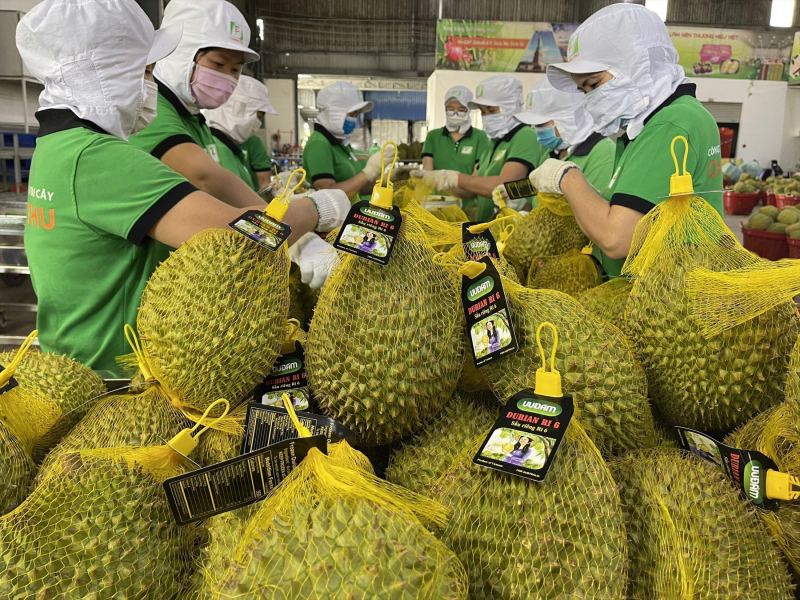Vietnamese businesses to improve quality of products to fully tap Chinese market
PSNews - Vietnamese management agencies, businesses, and industry associations should have a clear understanding of relevant information and implement synchronised solutions, focusing on improving the quality of goods and promoting exports via official channels.

China spent 805 million USD on importing vegetables and fruits from Vietnam in the first four months of 2023, up 29% year-on-year, according to the Vietnam Fruit and Vegetables Association (Vinafruit).
The association reported that China led the top five importers of Vietnam's vegetables and fruits with exports to the country accounting for 59% of Vietnam’s total export volume.
Dang Phuc Nguyen, General Secretary of Vinafruit, said that Vietnam’s export revenue in June set a record so far thanks to China’s opening to many Vietnamese fruits such as durian and grapefruit.
Nguyen forecast that the export of vegetables and fruits in the next months, especially to the Chinese market, will continue to grow as Vietnam has entered the fruit harvesting season.
According to the Ministry of Industry and Trade (MoIT), Vietnam’s total import-export turnover to China in the first five months hit 62.2 billion USD, with Vietnam's exports to China reaching 19.8 billion USD, down 9.3% compared to the same period last year.
Experts attributed the reduction to China’s stricter requirements for product standards and quality.
In the context of increasingly fierce competition, to maintain and expand the market share in the Chinese market, Vietnamese producers and exporters need to swiftly standardise their production and business activities and better the quality standards of their products to meet the stricter requirements of this market, they said.
Minister of Industry and Trade Nguyen Hong Dien said China is no longer an easy market as before, and that this big economy has long been a key exporter of many products. Chinese exports are quite similar to those from Vietnam, posing both advantages and challenges for Vietnamese goods, he noted.
For better exports to the market, the minister advised businesses to adapt their production methods towards safety and specific standards, and ensure that their cultivation processes meet traceability requirements.
Insiders said that competitive pressure in the Chinese market is increasing as more countries eye on exploiting and expanding their market share in this country.
Therefore, Vietnamese management agencies, businesses, and industry associations should have a clear understanding of relevant information and implement synchronised solutions, focusing on improving the quality of goods and promoting exports via official channels.
According to Luong Van Tai from the Vietnam Trade Office in Beijing, Vietnamese firms exporting vegetables and fruits should explore investment and collaboration opportunities with Chinese businesses in the processing of vegetables and fruits, towards increasing the value of exports and keeping up with the growing trend of the processed fruit and vegetable consumption in recent years.

